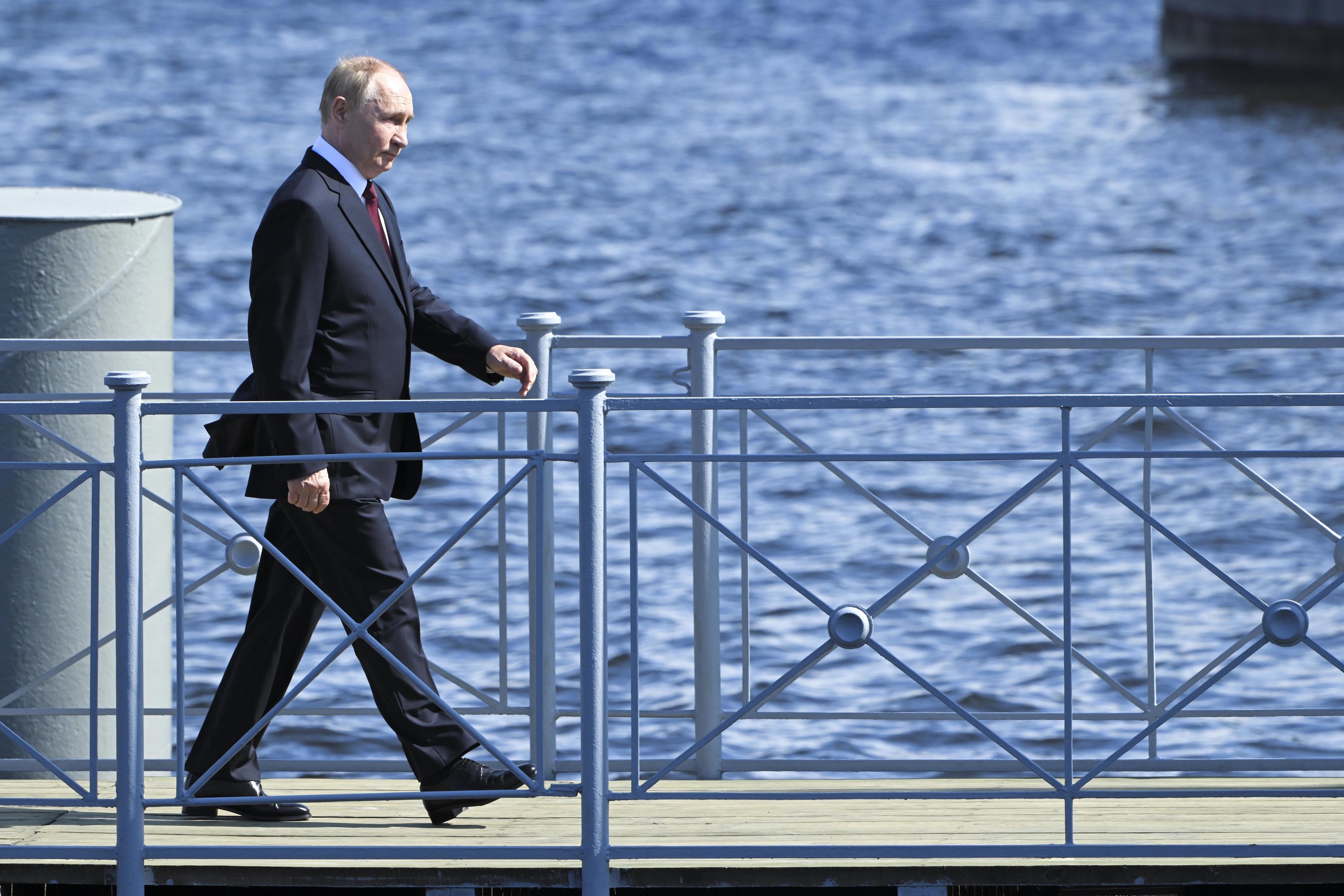Speaking at a naval parade in St Petersburg, Putin vowed "mirror measures" after the U.S. earlier this month announced that it will start deploying the weapons in 2026, to affirm its commitment to NATO and European defense following Moscow's all-out invasion of Ukraine in February 2022.
"If the U.S. implements such plans, we will consider ourselves free from the previously imposed unilateral moratorium on the deployment of intermediate and shorter-range strike weapons, including increasing the capability of the coastal forces of our navy," Putin said. He added that Moscow's development of suitable systems is "in its final stage."
Both Washington and Moscow have in recent weeks signaled readiness to deploy intermediate-range ground-based weapons that were banned for decades under a 1987 U.S.-Soviet treaty. The U.S. pulled out of the agreement in 2019, accusing Moscow of conducting missile tests that violated it.
The allegations, which Russia denied, came as tensions mounted between Moscow and the West in the wake of the downing of a Malaysian airliner carrying 298 people over war-torn eastern Ukraine. Two Russians and a pro-Moscow Ukrainian were ultimately convicted over their role in the attack.
Washington and Berlin said in a joint statement this month that the U.S. weapons to be placed in Germany would ultimately include SM-6 missiles, Tomahawk cruise missiles, and "developmental hypersonic weapons", including those with a significantly longer range than the ones currently deployed across Europe.
Most of Russia's missile systems are capable of carrying either conventional or nuclear warheads. Russia's deputy foreign minister, Sergei Ryabkov, said last week that the Kremlin did not rule out new deployments of nuclear missiles in response to the U.S. move.
Ryabkov added that defending Kaliningrad, Russia's heavily militarized exclave wedged between NATO members Poland and Lithuania, was of particular concern.
Putin has for years cast U.S. deployment of missile infrastructure in Europe as an aggressive move aimed at hamstringing Moscow's capabilities. The news about the planned stationing of new weapons in Germany came at a NATO summit in Washington earlier this month. At the same event, allies announced that a new U.S. base in Poland, Ukraine's western neighbor, is ready to enter operation and will be capable of intercepting ballistic missiles.
